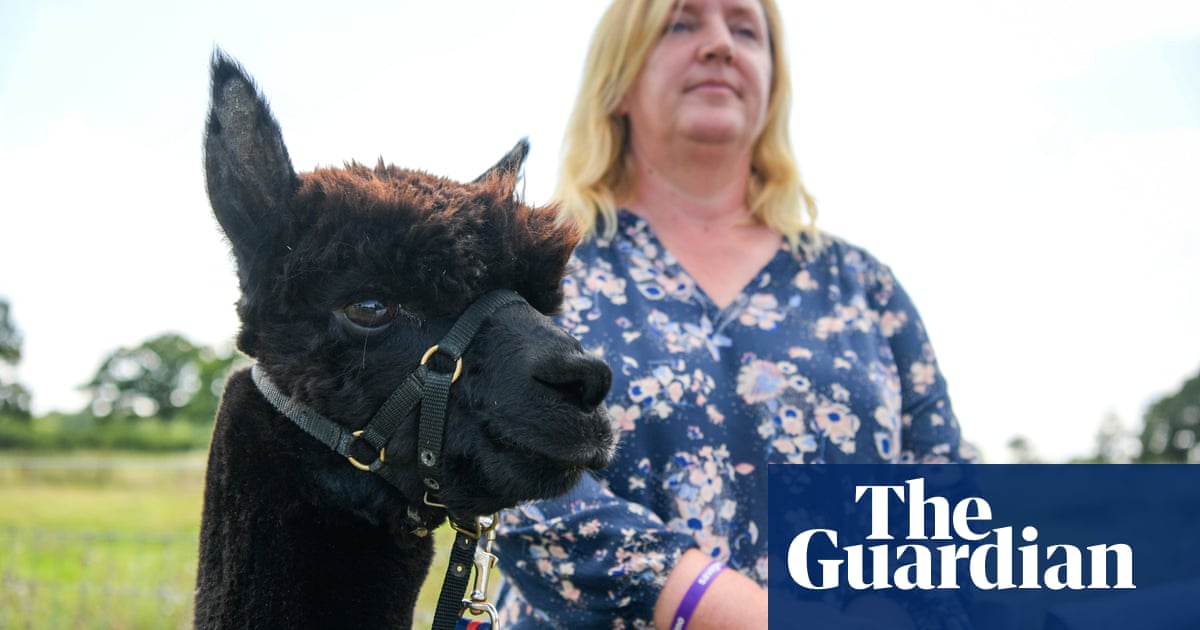
The row over his fate has captured the public’s imagination – with a petition to save him gathering nearly 100,000 signatures and his friendly, furry face splashing newspaper front pages. But vets have cautioned that the law is clear: Geronimo the alpaca must be put down.
The six-year-old animal is facing a death sentence after twice testing positive for bovine tuberculosis (bTB), a deadly respiratory disease that has blighted the countryside for decades.
Owner Helen Macdonald, a veterinary nurse who runs an alpaca farm in Gloucestershire, first brought Geronimo to the UK from New Zealand four years ago, when he tested positive on arrival. Since then, she says she has spent £80,000 exhausting legal avenues trying to save him.
And now even the mop-haired camelid’s celebrity supporters, such as actor Joanna Lumley and environmentalist Chris Packham, have not been able to change the mind of environment secretary George Eustice, who wrote a piece for the Mail on Sunday sealing Geronimo’s fate.
He wrote that culling animals for bTB was an “arduous but necessary endeavour” and that Geronimo’s positive tests, which Macdonald disputes, are a “very strong indicator of the presence of the disease”.
Vets have said being an alpaca does not give Geronimo an exemption from rules that apply to all animals.
Sarah Tomlinson, a farm vet and bTB expert who sits on Defra’s Bovine TB Partnership, said, despite efforts of campaigners, including plans to march from Defra HQ to Downing Street on Monday afternoon, Eustice’s comments had made it clear the writing is already on the wall for Geronimo, whose death is reportedly scheduled for Thursday.
“Politically, this is going to happen. There is nothing that will change that,” she said.
She added: “Ultimately it is a notifiable disease, and we have quite specific laws around notifiable diseases because they have either impacts on animal health and welfare, impacts on international trade – so if we have it we can’t trade – and also for public health reasons.”
Notifiable diseases are usually highly contagious infections that can spread to humans, especially when animals are in regular close contact with people.
Tomlinson said: “I have sat in farmers’ kitchens in tears with families, because cows are going [to be culled]. I can’t say every one is as loved as this alpaca, but for whatever reason, some are more special than others.
“I have total sympathy with her emotion, because it is sad, anybody that’s lost any animal or human that they are close to, that’s real. But actually, as hard as it is, we do have rules to protect the public to protect other animals to stop it spreading to them and to protect our industry.”
Macdonald has vowed to “stand in the way of any gunman who comes to destroy Geronimo” and insists that he poses no risk to other animals or humans.
It is true that there is no indication that Geronimo has passed on the infection, as no other animals or humans nearby have tested positive, though this may simply be because “it is such a slow progressive disease”, Tomlinson said.
Macdonald and her fellow campaigners also claim the test used on Geronimo was not suitable. She told the Sunday Times: “This is about more than just Geronimo. This is about standing up to a government that thinks it can do whatever it wants.”
However, the government’s chief veterinary officer Christine Middlemiss refuted this, saying: “The tests used on Geronimo were developed for use on alpacas and are highly specific – the chances of a false positive are significantly less than 1% and we have tested him twice.”
But, as Macdonald’s campaign enters the 11th hour, with both sides accusing the other of dirty tactics, Tomlinson hoped that Geronimo’s tale may help the public understand the reality facing farmers across the country.
“If we can use this publicity to highlight that TB is horrible for farmers every day, not just for one alpaca in one situation, then that would be a positive out of all of this,” she added.












